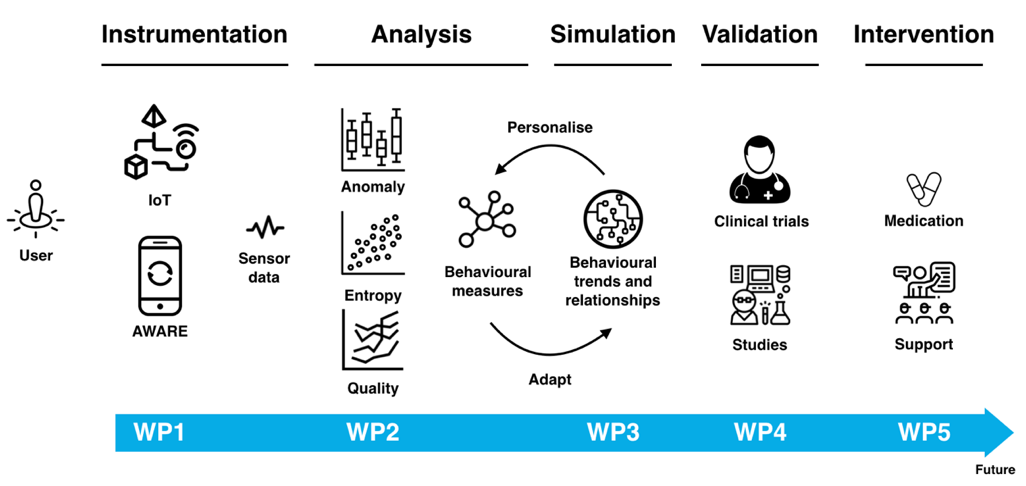 The University of Oulu’s Center for Ubiquitous Computing has been awarded the prestigious Academy of Finland Research Fellow (2018-2023) to provide objective measures for identifying depression and systematically track its course over time.
The University of Oulu’s Center for Ubiquitous Computing has been awarded the prestigious Academy of Finland Research Fellow (2018-2023) to provide objective measures for identifying depression and systematically track its course over time.
“The goal is to create a novel approach for identifying anomalous human behavior based on systematic behavioral tracking capturing daily data from a patient’s smartphones and other contextual sources to enable efficient just-in-time interventions”
The research team is led by Dr. Denzil Ferreira, who was awarded a 5-year Academy Research Fellow grant of 438 874 € for the project Entropy-AWARE Instrumentation for Just-In-Time Anomalous Human Behaviour Interventions (SENSATE). The research conducted in Oulu is based on the close collaboration with the Depression Grand Challenge at UCLA (https://grandchallenges.ucla.edu/depression) and European Alliance Against Depression (http://www.eaad.net) providing domain experts and international patient cohorts.
At this stage, information will be collected as widely as possible in order to find significant factors when detecting anomalous activity.
“Patients decide what information they are willing to share but we aim at analyzing at least location information as well as physical activity and interaction data concerning for instance care, support networks, and social connections,” Ferreira clarifies.
The data is analyzed with the means of anomaly detection, entropy analysis and data quality, and if anomalous behavior is detected, the patient is eligible for just-in-time intervention. The method will not only be a key to the successful just-in-time assessment and intervention of depression at the level of an individual patient, but to provide effective depression diagnosis and treatment to hundreds of millions of people.
“Ultimately, SENSATE will be made publicly available as an open source platform, so that it can be further tailored to other problem domains benefiting from anomalous behavior detection” says Ferreira.
Depression affects globally more than 300 million people and is a leading cause of disability worldwide. Although there are effective treatments for depression, less than half of those affected in the world and less than 10% in some countries are treated.

